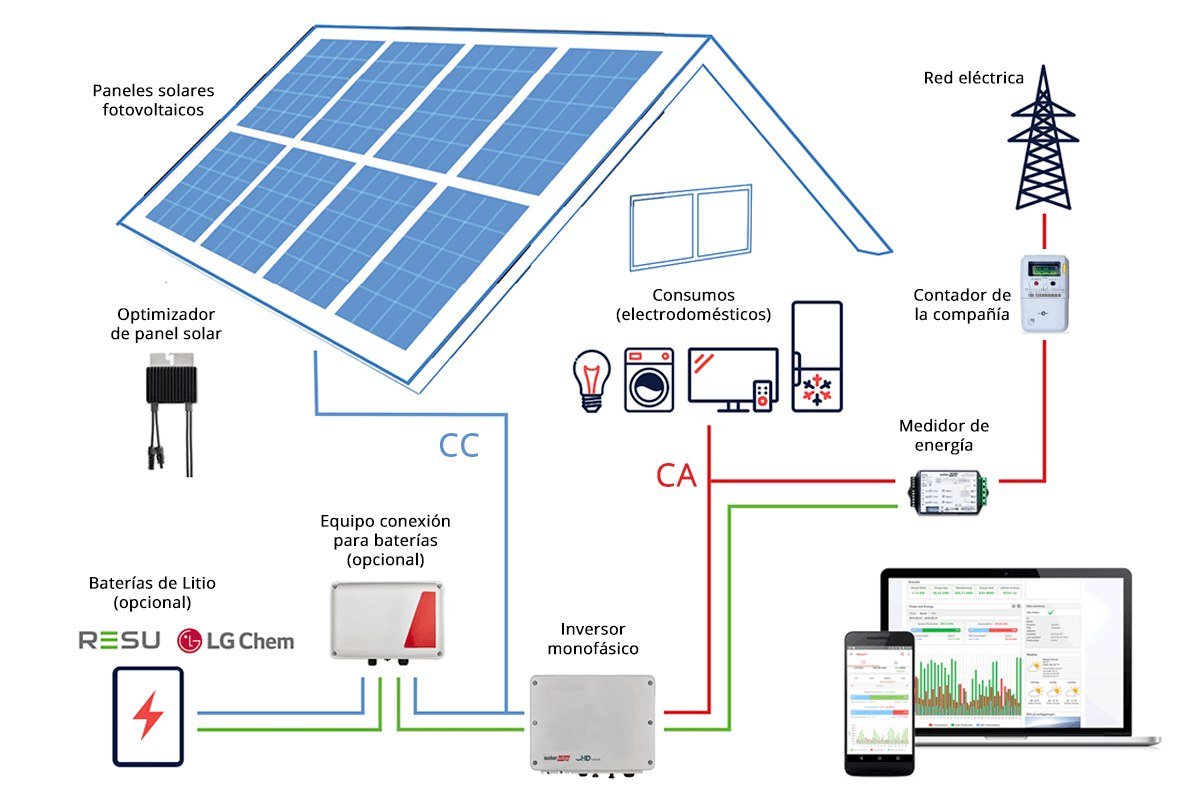
Many of us have been waiting for news like this for several years. Finally, July 28, Resolution 206/2021 of the Ministry of Energy and Mines (MINEM) authorized individuals to import solar panel systems, their parts and pieces, without commercial purposes or payment of customs duties.
The measure arrives ‘with the objective of continuing with the development of renewable energy sources and increasing their participation in electric power generation in the national territory.’ Hence, according to the resolution, imported photovoltaic systems can be autonomous or connected to the national power grid.
For a better understanding, these systems are generally composed of a) photovoltaic panels, b) direct and alternating current protectors c) an inverter for photovoltaic systems, d) batteries for energy storage, e) electrical conductor, f) earthing system, g) racking (fittings and screws), h) electrical board, i) battery regulator, j) cabinet for parts and components of the photovoltaic system, and k) electrical accessories for assembly.
According to the MINEM Resolution, several of these elements (a, c, f, g, h, j) are considered fundamental parts and pieces, while “the rest of the components are considered common and are imported in accordance with the provisions of the General Customs of the Republic for these means.”
It is also made clear that, “the individual is responsible for the installation of the photovoltaic system and its sustainability, as well as for the recontracting of the electric service from the Electric Company,” since for the connection to the grid there are several requirements, also mentioned in the Sole Annex of the Resolution, among which are the interconnection point, the inverter, the electric protections and the contracting.
The news, as expected, generated certain debate, coupled with uncertainties due to the lack of knowledge in this regard. However, electrical engineering student, Enmanuel Jorge Coto, argued through his Twitter account that “the main objective is that you save on your electricity bill, and that people contribute to generating energy for the grid. That could even avoid blackouts. I have not seen any limit on the number of panels.”
According to his criteria, “if you don’t want to pay a single peso and you only want to earn (for the energy that can be sold to the Electric Company), all you have to do is design a system that is good enough to support your house and not take energy from the grid.”
This is achieved through the anti-islanding protection mentioned in the Sole Annex to the resolution, which isolates your residential or business circuit from the grid should an outage occur. According to Sonlyg EcoSoluciones, this protection “is integrated into the inverter, which must be on-grid, which means that the equipment generates when it detects that there is power in the grid, otherwise it does not work. When the power goes out, the inverter itself goes out of synchronization,” which means that the electricity stays with you.
“That is its advantage, that in case of hurricanes you have your own source,” notes Enmanuel Coto, “and if you get hold of a big enough kit with batteries and everything, you will have already isolated yourself even if you are still anchored, because you would only be selling your surplus to the grid and not taking from it.”
The Resolution does not specify whether the importation must be undertaken through the 41 enterprises that provide foreign trade services to Non-State Management Forms, or whether they can enter the national territory on a personal basis and under individual procedures. Likewise, prices are not described since this is a private investment made directly with foreign suppliers.


